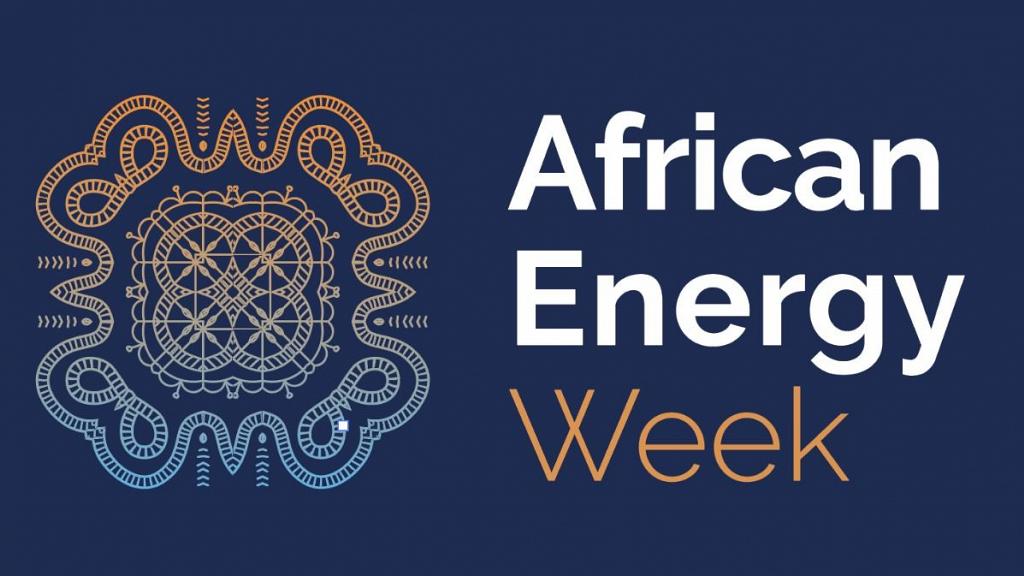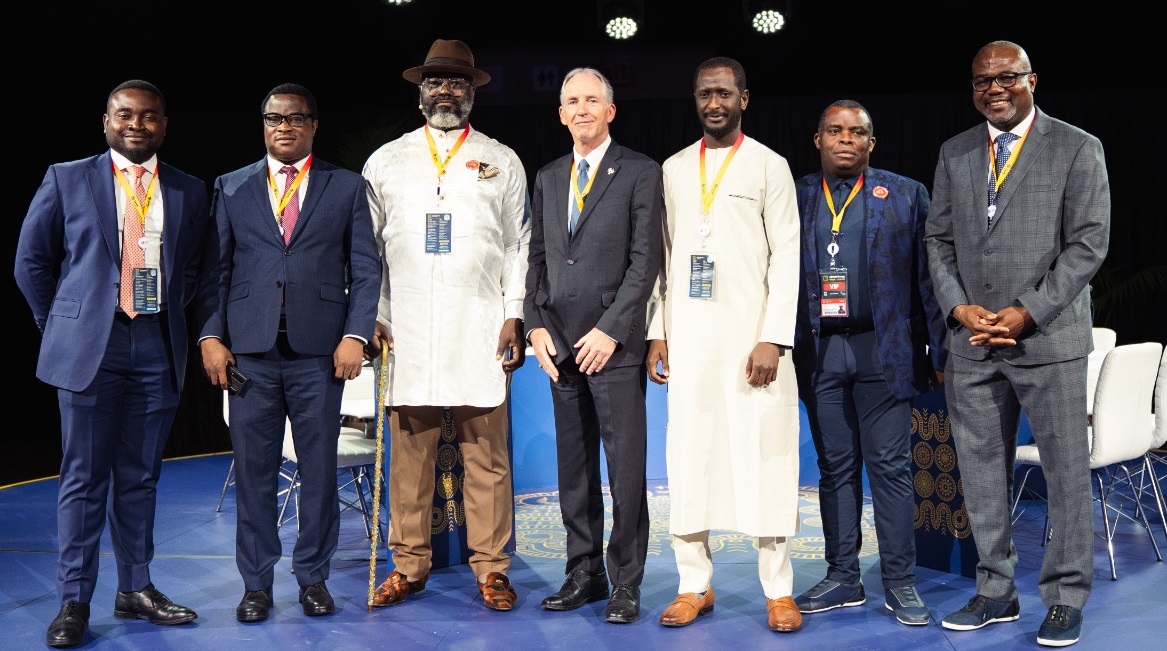World
Cape Town to Host 2022 African Energy Week October 18

By Adedapo Adesanya
The annual African Energy Week (AEW) will be taking place on October 18 -22, 2022, in Cape Town, South Africa, the organisers have announced.
The African Energy Chamber (AEC), which organises the event, will bring energy leaders and global stakeholders together for a week of intense dialogue on the African energy sector, with a strong pursuit of making energy poverty history by 2030.
In pursuit of an electrified economy, AEW 2022 will introduce critical topics that cover the entire energy value chain.
Regarding the upstream sector, there will be a focus on exploration, licensing rounds, and remaining competition for investment in 2022 and beyond.
With emerging frontier markets such as Somalia, Kenya, Namibia, Uganda and Côte d’Ivoire gaining increased attention from regional and international players, AEW 2022 will emphasize the potential and current opportunities across Africa’s emerging and mature upstream markets.
On the midstream front, AEW 2022 will offer critical insight into new and existing projects – such as the $6 billion African Renaissance Pipeline Project and the proposed 1,800km Tanzania-Uganda Natural Gas Pipeline Project – introducing lucrative opportunities to investors.
With the scaling up of refinery construction underway across the continent, the conference is committed to increasing investment and enhancing production across key African markets.
The organisers noted that by discussing the challenges and opportunities present across the downstream sector, African stakeholders will collaboratively discuss the future of the African energy industry.
On his part, Mr NJ Ayuk, Executive Chairman of the AEC said, “In 2021, they said it could not be done in Cape Town and we all must go to Dubai.
“With massive support from the City of Cape Town, the government of South Africa IOC’s and NOC’s and alternative energy companies, we demonstrated that Africa is ready and capable to hold a continent-wide energy event in Africa and we held the largest event on the continent. Even in the midst of the pandemic, AEW took place, ushering in a new era of safe, accessible, and industry-focused events.
“This year will be huge for the African energy industry. We expect a range of investments to be made and developments to take off that will drive the continent’s economic advancement.
“During this year’s edition of AEW, an emphasis will be placed on finance, natural gas, electrification, hydrogen, upstream and a just transition as we believe these sectors have a specific role to play in Africa.
“By developing our gas resources, Africa can meet the growing demand for energy while reducing emissions. From AEW 2022, we will be going to COP27 to meet with global leaders and discuss African energy – from Cape to Cairo.”
The organisers noted that as the continent continues to deal with reduced funding for hydrocarbon projects, AEW 2022 will offer new insights into how Africa’s oil and gas projects can raise capital in a post-COVID-19, energy transition context.
Accordingly, panel discussions and investor forums will place a focus on finance, enabling environments, and the role that African Energy Banks will play in financing the future of the industry. By introducing African stakeholders to innovative capital raising, AEW 2022 is committed to the growth of African oil and gas.
Regarding gas, the Chamber noted that Africa is not only rich with resources but opportunities. Markets such as Nigeria, Mozambique, Mauritania, Senegal, Tanzania, Equatorial Guinea, the Republic of the Congo, and Ghana have significant untapped resources.
Already, there has been an influx in investment and development within the gas sector, and yet a range of opportunities remain, particularly within the gas-to-power and Liquefied Natural Gas space.
AEW 2022, therefore, has placed a strong emphasis on the role that gas will play in electrifying Africa, driving socio-economic growth and industrialization for years to come. By introducing project profiles, highlighting key discoveries, and emphasizing how gas will drive a just transition in Africa, AEW 2022 has placed gas at the centre of its programme agenda.
The recent move by the European Union to label certain gas projects as green is likely to usher in a new wave of investment in Africa and AEW 2022 will be the place where deals in this area will be made.
The development of resources such as gas, hydrogen and renewables according to the organisers will ensure Africa adheres to global climate mitigation targets while at the same time driving economic growth.
During the summit, speakers will highlight key opportunities across Africa’s renewable energy space, providing insight into potential markets such as the Congo, Mozambique, the Gambia, Kenya, Angola, and Libya, all rich with renewable resources.
Additionally, the programme will emphasize the role that hydrogen will play in Africa by detailing high potential markets and projects such as Hive Hydrogen’s green ammonia plant in South Africa and the $9.4 billion green hydrogen project in Namibia.
World
African Visual Art is Distinguished by Colour Expression, Dynamic Form—Kalalb

By Kestér Kenn Klomegâh
In this insightful interview, Natali Kalalb, founder of NAtali KAlalb Art Gallery, discusses her practical experiences of handling Africa’s contemporary arts, her professional journey into the creative industry and entrepreneurship, and also strategies of building cultural partnership as a foundation for Russian-African bilateral relations. Here are the interview excerpts:
Given your experience working with Africa, particularly in promoting contemporary art, how would you assess its impact on Russian-African relations?
Interestingly, my professional journey in Africa began with the work “Afroprima.” It depicted a dark-skinned ballerina, combining African dance and the Russian academic ballet tradition. This painting became a symbol of cultural synthesis—not opposition, but dialogue.
Contemporary African art is rapidly strengthening its place in the world. By 2017, the market was growing so rapidly that Sotheby launched its first separate African auction, bringing together 100 lots from 60 artists from 14 foreign countries, including Algeria, Ghana, Mali, Nigeria, Senegal, and others. That same year during the Autumn season, Louis Vuitton Foundation in Paris hosted a major exhibition dedicated to African art. According to Artnet, sales of contemporary African artists reached $40 million by 2021, a 434% increase in just two years. Today, Sotheby holds African auctions twice a year, and in October 2023, they raised $2.8 million.
In Russia, this process manifests itself through cultural dialogue: exhibitions, studios, and educational initiatives create a space of trust and mutual respect, shaping the understanding of contemporary African art at the local level.
Do you think geopolitical changes are affecting your professional work? What prompted you to create an African art studio?
The international context certainly influences cultural processes. However, my decision to work with African themes was not situational. I was drawn to the expressiveness of African visual language—colour, rhythm, and plastic energy. This theme is practically not represented systematically and professionally in the Russian art scene.
The creation of the studio was a step toward establishing a sustainable platform for cultural exchange and artistic dialogue, where the works of African artists are perceived as a full-fledged part of the global cultural process, rather than an exotic one.
To what extent does African art influence Russian perceptions?
Contemporary African art is gradually changing the perception of the continent. While previously viewed superficially or stereotypically, today viewers are confronted with the depth of artistic expression and the intellectual and aesthetic level of contemporary artists.
Portraits are particularly impactful: they allow us to see not just an abstract image of a “continent,” but a concrete personality, character, and inner dignity. Global market growth data and regular auctions create additional trust in African contemporary art and contribute to its perception as a mature and valuable movement.
Does African art reflect lifestyle and fashion? How does it differ from Russian art?
African art, in my opinion, is at its peak in everyday culture—textiles, ornamentation, bodily movement, rhythm. It interacts organically with fashion, music, interior design, and the urban environment. The Russian artistic tradition is historically more academic and philosophical. African visual art is distinguished by greater colour expression and dynamic form. Nevertheless, both cultures are united by a profound symbolic and spiritual component.
What feedback do you receive on social media?
Audience reactions are generally constructive and engaging. Viewers ask questions about cultural codes, symbolism, and the choice of subjects. The digital environment allows for a diversity of opinions, but a conscious interest and a willingness to engage in cultural dialogue are emerging.
What are the key challenges and achievements of recent years?
Key challenges:
- Limited expert base on African contemporary art in Russia;
- Need for systematic educational outreach;
- Overcoming the perception of African art as exclusively decorative or ethnic.
Key achievements:
- Building a sustainable audience;
- Implementing exhibition and studio projects;
- Strengthening professional cultural interaction and trust in African
contemporary art as a serious artistic movement.
What are your future prospects in the context of cultural diplomacy?
Looking forward, I see the development of joint exhibitions, educational programs, and creative residencies. Cultural diplomacy is a long-term process based on respect and professionalism. If an artistic image is capable of uniting different cultural traditions in a single visual space, it becomes a tool for mutual understanding.
World
Ukraine Reveals Identities of Nigerians Killed Fighting for Russia

By Adedapo Adesanya
The Ukrainian Defence Intelligence (UDI) has identified two Nigerian men, Mr Hamzat Kazeem Kolawole and Mr Mbah Stephen Udoka, allegedly killed while fighting as Russian mercenaries in the war between the two countries ongoing since February 2022.
The development comes after Russia denied knowledge of Nigerians being recruited to fight on the frontlines.
Earlier this week, the Russian Ambassador to Nigeria, Mr Andrey Podyolyshev, said in Abuja that he was not aware of any government-backed programme to recruit Nigerians to fight in the war in Ukraine.
He said if at all such activity existed, it is not connected with the Russian state.
However, in a statement on Thursday, the Ukrainian Defence released photographs of Nigerians killed while defending Russia.
“In the Luhansk region, military intelligence operatives discovered the bodies of two citizens of the Federal Republic of Nigeria — Hamzat Kazeen Kolawole (03.04.1983) and Mbah Stephen Udoka (07.01.1988),” the statement read.
According to the statement, both men served in the 423rd Guards Motor Rifle Regiment (military unit 91701) of the 4th Guards Kantemirovskaya Tank Division of the armed forces of the Russian Federation.
UDI said that they signed contracts with the Russian Army in the second half of 2025 – the deceased Mr Kolawole on August 29 and Mr Udoka on September 28.
“Udoka received no training whatsoever — just five days later, on October 3, he was assigned to the unit and sent to the temporarily occupied territories of Ukraine,” the report read.
It added that no training records for Mr Kolawole have been preserved; however, it is highly likely that he also received no military training, but his wife and three children remain in Nigeria.
Both Nigerians, the report added, were killed in late November during an attempt to storm Ukrainian positions in the Luhansk region.
“They never engaged in a firefight — the mercenaries were eliminated by a drone strike,” UDI stated, warning foreign citizens against travelling to the Russian Federation or taking up any work on the territory of the “aggressor state”.
“A trip to Russia is a real risk of being forced into a suicide assault unit and, ultimately, rotting in Ukrainian soil,” the statement read.
In an investigation earlier this month, CNN reported that hundreds of African men have been enticed to fight for Russia in Ukraine with the promise of civilian jobs and high salaries. However, the media organisation uncovered that they are being deceived or sent to the front lines with little combat training.
CNN said it reviewed hundreds of chats on messaging apps, military contracts, visas, flights and hotel bookings, as well as gathering first-hand accounts from African fighters in Ukraine, to understand just how Russia entices African men to bolster its ranks.
World
Today’s Generation of Entrepreneurs Value Flexibility, Autonomy—McNeal-Weary

By Kestér Kenn Klomegâh
The Young African Leaders Initiative (YALI) is the United States’ signature step to invest in the next generation of African leaders. Since its establishment in 2010 by Obama administration, YALI has offered diverse opportunities, including academic training in leadership, governance skills, organizational development and entrepreneurship, and has connected with thousands of young leaders across Africa. This United States’ policy collaboration benefits both America and Africa by creating stronger partnerships, enhancing mutual prosperity, and ensuring a more stable environment.
In our conversation, Tonya McNeal-Weary, Managing Director at IBS Global Consulting, Inc., Global Headquarters in Detroit, Michigan, has endeavored to discuss, thoroughly, today’s generation of entrepreneurs and also building partnerships as a foundation for driving positive change and innovation in the global marketplace. Here are the excerpts of her conversation:
How would you describe today’s generation of entrepreneurs?
I would describe today’s generation of entrepreneurs as having a digital-first mindset and a fundamental belief that business success and social impact can coexist. Unlike the entrepreneurs before them, they’ve grown up with the internet as a given, enabling them to build global businesses from their laptops and think beyond geographic constraints from day one. They value flexibility and autonomy, often rejecting traditional corporate ladders in favor of building something meaningful on their own terms, even if it means embracing uncertainty and financial risk that previous generations might have avoided.
And those representing the Young African Leaders Initiative, who attended your webinar presentation late January 2026?
The entrepreneurs representing the Young African Leaders Initiative are redefining entrepreneurship on the continent by leveraging their unique perspectives, cultural heritage, and experiences. Their ability to innovate within local contexts while connecting to global opportunities exemplifies how the new wave of entrepreneurs is not confined by geography or conventional expectations.
What were the main issues that formed your ‘lecture’ with them, Young African Leaders Initiative?
The main issues that formed my lecture for the Young African Leaders Initiative were driven by understanding the importance of building successful partnerships when expanding into the United States or any foreign market. During my lecture, I emphasized that forming strategic alliances can help entrepreneurs navigate unfamiliar business environments, access new resources, and foster long-term growth. By understanding how to establish strong and effective partnerships, emerging leaders can position their businesses for sustainable success in global markets. I also discussed the critical factors that contribute to successful partnerships, such as establishing clear communication channels, aligning on shared goals, and cultivating trust between all parties involved. Entrepreneurs must be proactive in seeking out partners who complement their strengths and fill gaps in expertise or resources. It is equally important to conduct thorough due diligence to ensure that potential collaborators share similar values and ethical standards. Ultimately, the seminar aimed to empower YALI entrepreneurs with practical insights and actionable strategies for forging meaningful connections across borders. Building successful partnerships is not only a pathway to business growth but also a foundation for driving positive change and innovation in the global marketplace.
What makes a ‘leader’ today, particularly, in the context of the emerging global business architecture?
In my opinion, a leader in today’s emerging global business architecture must navigate complexity and ambiguity with a fundamentally different skill set than what was previously required. Where traditional leadership emphasized command-and-control and singular vision, contemporary leaders succeed through adaptive thinking and collaborative influence across decentralized networks. Furthermore, emotional intelligence has evolved from a soft skill to a strategic imperative. Today, the effective modern leader must possess deep cross-cultural intelligence, understanding that global business is no longer about exporting one model worldwide but about genuinely integrating diverse perspectives and adapting to local contexts while maintaining coherent values.
Does multinational culture play in its (leadership) formation?
I believe multinational culture plays a profound and arguably essential role in forming the kind of leadership required in today’s global business environment. Leaders who have lived, worked, or deeply engaged across multiple cultural contexts develop a cognitive flexibility that’s difficult to replicate through reading or training alone. More importantly, multinational exposure tends to dismantle the unconscious certainty that one’s own way of doing things is inherently “normal” or “best.” Leaders shaped in multicultural environments often develop a productive discomfort with absolutes; they become more adept at asking questions, seeking input, and recognizing blind spots. This humility and curiosity become strategic assets when building global teams, entering new markets, or navigating geopolitical complexity. However, it’s worth noting that multinational experience alone doesn’t automatically create great leaders. What matters is the depth and quality of cross-cultural engagement, not just the passport stamps. The formation of global leadership is less about where someone has been and more about whether they’ve developed the capacity to see beyond their own cultural lens and genuinely value differences as a source of insight rather than merely tolerating them as an obstacle to overcome.
In the context of heightening geopolitical situation, and with Africa, what would you say, in terms of, people-to-people interaction?
People-to-people interaction is critically important in the African business context, particularly as geopolitical competition intensifies on the continent. In this crowded and often transactional landscape, the depth and authenticity of human relationships can determine whether a business venture succeeds or fails. I spoke on this during my presentation. When business leaders take the time for face-to-face meetings, invest in understanding local priorities rather than imposing external agendas, and build relationships beyond the immediate transaction, they signal a different kind of partnership. The heightened geopolitical situation actually makes this human dimension more vital, not less. As competition increases and narratives clash about whose model of development is best, the businesses and nations that succeed in Africa will likely be those that invest in relationships characterized by reciprocity, respect, and long-term commitment rather than those pursuing quick wins.
How important is it for creating public perception and approach to today’s business?
Interaction between individuals is crucial for shaping public perception, as it influences views in ways that formal communications cannot. We live in a society where word-of-mouth, community networks, and social trust areincredibly important. As a result, a business leader’s behavior in personal interactions, their respect for local customs, their willingness to listen, and their follow-through on commitments have a far-reaching impact that extends well beyond the immediate meeting. The geopolitical dimension amplifies this importance because African nations now have choices. They’re no longer dependent on any single partner and can compare approaches to business.
From the above discussions, how would you describe global business in relation to Africa? Is it directed at creating diverse import dependency?
While it would be too simplistic to say global business is uniformly directed at creating import dependency, the structural patterns that have emerged often produce exactly that outcome, whether by design or as a consequence of how global capital seeks returns. Global financial institutions and trade agreements have historically encouraged African nations to focus on their “comparative advantages” in primary commodities rather than industrial development. The critical question is whether global business can engage with Africa in ways that build productive capacity, transfer technology, develop local talent, and enable countries to manufacture for themselves and for export—or whether the economic incentives and power irregularities make this structurally unlikely without deliberate policy intervention.
-

 Feature/OPED6 years ago
Feature/OPED6 years agoDavos was Different this year
-
Travel/Tourism10 years ago
Lagos Seals Western Lodge Hotel In Ikorodu
-

 Showbiz3 years ago
Showbiz3 years agoEstranged Lover Releases Videos of Empress Njamah Bathing
-

 Banking8 years ago
Banking8 years agoSort Codes of GTBank Branches in Nigeria
-

 Economy3 years ago
Economy3 years agoSubsidy Removal: CNG at N130 Per Litre Cheaper Than Petrol—IPMAN
-

 Banking3 years ago
Banking3 years agoSort Codes of UBA Branches in Nigeria
-

 Banking3 years ago
Banking3 years agoFirst Bank Announces Planned Downtime
-

 Sports3 years ago
Sports3 years agoHighest Paid Nigerian Footballer – How Much Do Nigerian Footballers Earn





















